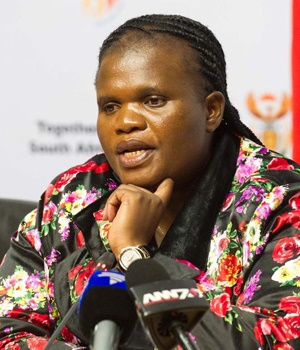
Broadcasting regulator Icasa recently outlined an increase in the quota of local music and programming that should be broadcast on radio stations and TV channels in the country.
When the new regulations come into effect – 18 months from the date of publication in the Gazette – commercial radio and TV will have to source 35% of music they play on air from local artists, which is up from 25% previously.
Public and community TV and radio stations have a much tougher mandate, which requires them to ensure that 60% of all music and content is sourced locally – an increase from 40%.
The issue of local content is a heated and wide-ranging debate in many countries for several reasons – the two most important ones being cultural preservation and the need to grow local music and TV-content industries, which clearly have a direct effect on job creation, particularly among young people.
As a result of this, many countries have introduced stringent local content requirements. South Africa’s broadcasting regulator is therefore not doing anything out of the ordinary, but is instead supporting and advocating an important global trend.
In our case, TV and radio-content regulations needed to be revised to bring them in line with current sector developments, such as the move towards digital migration.
Predictably, there were contradicting opinions as to the exact nature of the revisions.
Some stakeholders argued for the easing of regulations to allow market forces such as demand and supply to shape the local content.
Others were of the view that the regulator should regulate in areas where there is less broadcast material available and deregulate in areas that showed greater demand from the public.
A good example of this is music genres – some genres are in high demand and others are highly abundant.
I have no doubt in my mind that these increases will further stimulate the growth of independent TV, film production and music industries.
Often, we hear radio and television station managers arguing that their playlists reflect a lot of international content because there is a lack of local material.
These new regulations are therefore critical to encourage South African musicians to produce their own music because they know it will be played on our radio stations.
Furthermore, listeners get to appreciate local music because they will be more exposed to it as such music will feature regularly on TV and radio stations.
This then spurs them on to buy the music, thus supporting our local artists and encouraging them to produce more content.
Another important benefit from the increase in local content requirements is the contribution towards the preservation of South Africa’s beautiful and diverse cultures. Through music, nations are able to preserve their cultural values by passing them on to younger generations.
One sign of a healthy and thriving community is its ability to promote its culture.
Music is an integral part of culture that not only entertains, but teaches important lessons about a national heritage.
Most importantly, heritage and history are critical elements in the provision of meaning and character of a nation and its people.
In a country as diverse and complex as ours, the increased local quotas can go a long way in fostering social cohesion, and also provide an opportunity for all of us to learn about the many different ethnic groups that make up the South African nation.
When a ship hits rough seas, it’s an “all-hands-on-deck” moment for the crew. This is an all-hands-on-deck moment for us as South Africans. We ought to support all efforts aimed at growing our own local content and music industry.
President Jacob Zuma, during his state of the nation address in February, said the economy needed a major push; and went on to list a nine-point plan to eradicate unemployment and accelerate the growth of the economy.
Making our content and music industry sustainable should be part of these efforts. “Buying local” has the real potential to
make a more significant contribution, not only to our heritage, but to the coffers of our country.
Indeed, there are job creation, export, commercial and educational opportunities presented by our music industry if the right support structures can be put in place.
Muthambi is minister of communications




 Publications
Publications
 Partners
Partners








